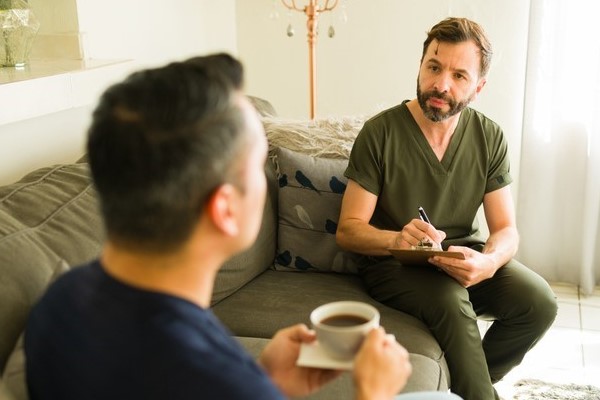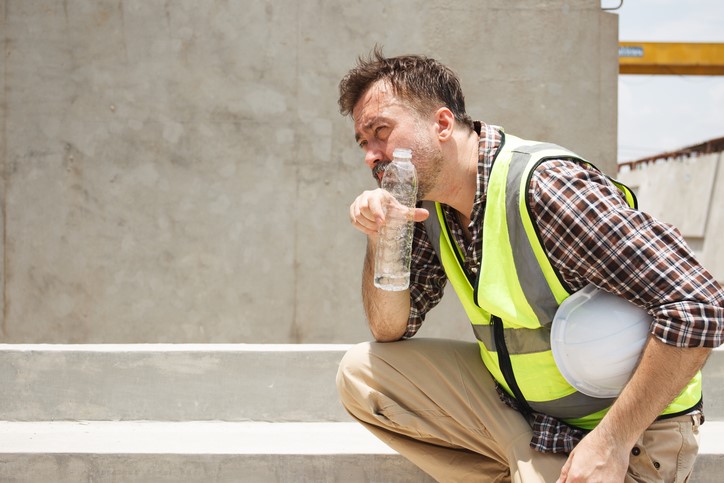More than a third (35%) of UK adults have sought help from a counsellor or psychotherapist at some point in their lives rising to a quarter of those aged 16 to 25, according to our annual Public Perceptions Survey1.
Each year we ask more than 5,000 UK adults about experiences of, and attitudes to, therapy and mental health. The survey, carried out by YouGov, also looks at how people cope with and are affected by issues in their own lives, work and family.
Our survey found more than seven in 10 adults who’ve had therapy found it helpful (73%) and three quarters (75%) would recommend it to anyone looking for mental health support and to improve their wellbeing.
Loneliness is also having an impact with more than half of people (54%) saying it affects their mental health. This increases to nearly three quarters (72%) of those aged 16 to 25.
Dr Lisa Morrison Coulthard, Director of Professional Standards, Policy and Research.
Experiences and attitudes around counselling


A quarter of 16 to 25 year olds have had therapy
- More than a third (35%) of people have had counselling at some point in their life (29% of men, 41% of women)
- Nearly a third of people have had therapy in the last 12 months (28% men, 30% women)
- A quarter (25%) of those aged 16 to 25 have seen a therapist (a fifth in the past 12 months)
- Fewer people think there’s a stigma attached to counselling (down from 46% in 2020 to 42% in 2025)
- Three quarters (75%) of people who’ve had therapy would recommend counselling to someone who had emotional difficulties or needed mental health support
- Only 18% of people would be comfortable talking to an AI chat bot about their mental health - compared to 60% who would be comfortable talking to a therapist
- Nearly half (48%) of people mistakenly think that ‘therapist’ is a regulated title like Doctor, Midwife or Dentist
Top five reasons people had therapy in last two years:
- Anxiety (62%)
- Stress (51%)
- Depression (50%)
- Confidence, self-esteem and support (28%)
- Sleep (26%)
State of the nation’s mental health



Loneliness affects more than half of people's mental health
- Just under two thirds of people (66%) have experienced at least one mental health issue in the past five years - anxiety (46%), stress (43%) and depression (33%) are the top three
- One in six (16%) have experienced burnout at work
- Just over half of people (54%) said that loneliness affects their mental health. This rises to nearly to nearly three quarters (72%) among those aged 16 to 25
- Nearly two thirds of men (62%) say their mental health is good compared to only 56% of women
- There's been a rise in the past two years in sleep problems caused by worries about climate change (up 3%) and current news and events (up 5%)
How people access therapy


Increase in therapy via online video conferencing
- Twice as many people are having therapy over video conferencing (e.g. Zoom) compared to five years ago (13% in 2025 – 10% in 2022)
- In person therapy is still the most popular with more than two thirds (68%) preferring this type
- Half (48%) of people who’ve had therapy were referred by their GP
- Almost four in five of those who have had counselling said it was easy to arrange their first appointment (78%)
- More than one in ten (11%) were referred by their employer
- One in ten (9%) say they get mental health support from influencers
Top five therapy types
- CBT 47%
- Person centred 41%
- Brief therapy/solution focused brief therapy 15%
- Group 13%
- EMDR 8%
Five years since Covid-19


More than a fifth say their mental health is worse since the pandemic
- Nearly two-thirds (64%) of under 25s say the pandemic made them think about their mental health more
- Women (49%) were more likely to say this than men (43%)
- More than a fifth (21%) say their mental health is worse today than before the pandemic
What our members say

This year’s survey results chime with my clinical experience, particularly the increasing number seeking therapy (especially young people), the gradual move away from associated stigma, and the high numbers that would recommend therapy. The headline of the survey, is, for me, the worrying increase in loneliness (often dubbed an ‘epidemic’) and the proliferation of the (mostly unregulated/untrained) mental health influences we turn to – which feel somehow linked – along with the continuing impact of the Covid period, our progressively atomized existence and polarized discourse, and the threat of ecological collapse.

It’s encouraging to see growing awareness of the importance of mental health support, and the destigmatisation of therapy. This can only be a good thing in a world that can often feel stressful or isolating. The World Health Organisation has declared loneliness to be a global concern, and it’s clear how isolation contributes to stress, anxiety and depression. Loneliness can be a cause, and also a symptom, of emotional distress. It’s concerning to learn that nearly half of people wrongly believe that ’therapist’ is a protected title in the UK. This underscores the key role of organisations like the BACP in promoting ethical, professional standards in our profession, ensuring that clients receive safe, skilled therapeutic support.

One statistic that stands out to me is that 9% of people get mental health support from influencers. Although I welcome the conversations around mental health in the social media space, it’s worth considering how such content compares to a therapeutic relationship. Influencers talking to a general audience often have to work in broader strokes due to time-limited nature of the content and the design of the platforms. Nuance and the complexity of the individual and their experiences can often get lost. Although such accounts can help with psychoeducation, I feel it’s important to highlight the considerable differences between accessing information about mental health on social media compared to a two-way, interpersonal experience with a registered therapist.
1 About our Public Perceptions Survey
Since 2019, the BACP has conducted an annual survey to measure the opinions and attitudes of the British public towards mental health.
The survey data was collected using a self-complete, online methodology. A nationally representative sample of 5,150 adults (aged 16+) was taken from YouGov’s online research panel and results were weighted to provide a nationally representative dataset. Fieldwork for the 2025 survey was conducted between the 13 February and 4 March 2025.
Previous Public Perceptions Survey news

Men’s attitudes to therapy – and how they differ to women’s
Our latest Public Perceptions Survey gives a glimpse into men and women’s thoughts on and experiences of therapy

How to spot signs of stress in men
Stress top reason men try therapy for first time, according to our survey

Therapists’ tips for young people struggling with stress and burnout at work
Our members’ share advice for half of under 25’s who say work stress affects their mental health and sleep
Find out more

What therapy can help with
An A-Z list of issues and concerns which may be helped by talking to a counsellor.

Therapist Directory
How to use our online therapist directory to search for a counsellor or psychotherapist by location, services or specialisms

Types of therapy
An A-Z list of the different approaches, modalities or ways of working within counselling and psychotherapy.
